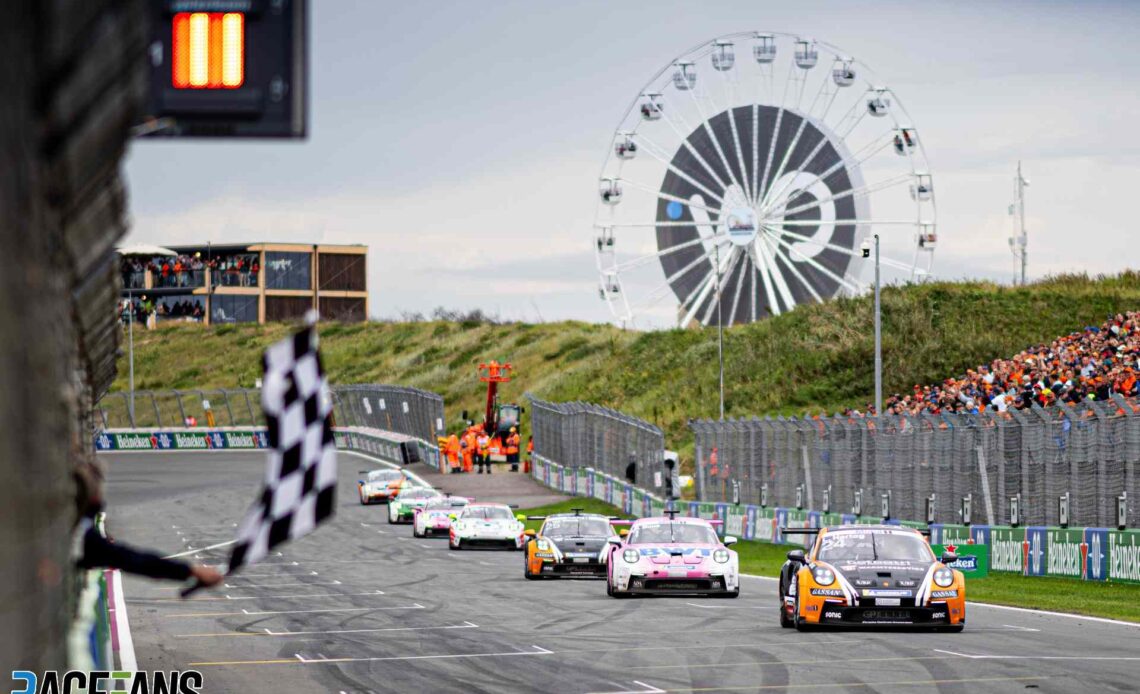One of Formula 1’s support series will switch to a synthetic fuel this season, two years before the world championship does the same.
Porsche says the fuel produced at its Haru Oni pilot plant in Chile will allow its Supercup cars to compete while producing close to no emissions.
The 911 GT3 Cup cars, which produce around 510bhp, do not require any alterations to use the fuel. The fuel is produced from renewable hydrogen and carbon dioxide.
“Through this project we are taking further steps towards achieving our decarbonisation goals,” said Porsche board member for research and development Michael Steiner.
“If you look at the entire value chain, the Porsche Mobil 1 Supercup racing cars can race with eFuels in a potentially almost CO2-neutral way. Here, the new fuel is used under the toughest conditions.
“To slow global warming, it is essential to reduce carbon dioxide emissions – this also applies to motorsport.”
While the CO2 used to produce the fuel is currently produced biologically, Porsche is developing new techniques to capture it from the atmosphere, contributing to a reduction in harmful emissions which contribute to global heating. The company believes this ‘direct air capture’ technology will have important applications for future energy consumption and storage.
The situation of the fuel plant in Chile allows it to use the region’s the strong, consistent winds to generate power. However the fuel still needs to be transported to Europe for use in the Supercup.
The series features up to 32 cars participating in eight double-header rounds, consuming around 50,000 litres of fuel over the course of the year. The championship will begin at Imola next month.
F1 intends to introduce synthetic fuels alongside its new power unit regulations in 2026 as it targets a reduction in its emissions to net zero by 2030. Formula 2 will introduce a 55% synthetic fuel next year.
Advert | Become a RaceFans supporter and
Other motorsport
Click Here to Read the Full Original Article at RaceFans…

